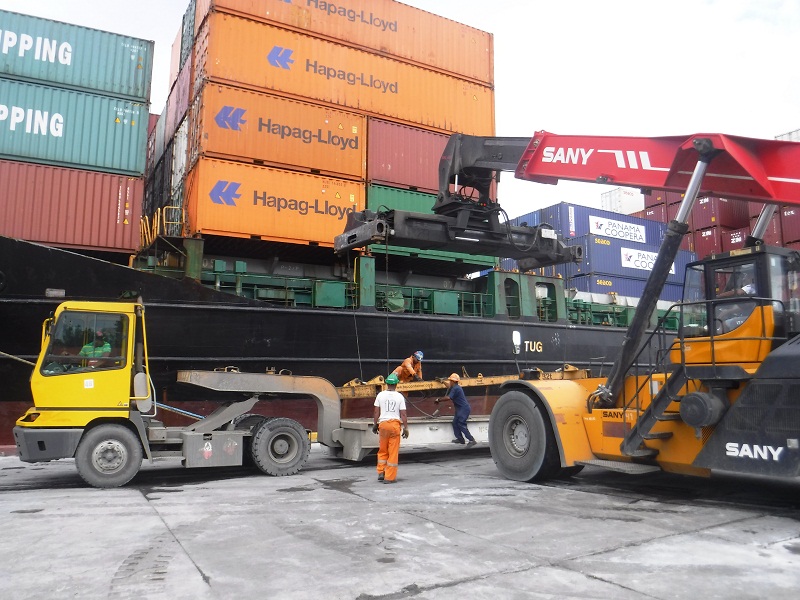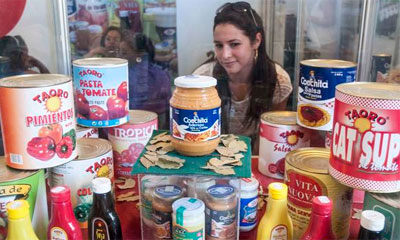
Diaz-Canel called to protect and increase national productions.
HAVANA, Cuba. – To defend everything that can be produced in the country, was the call Cuban President Miguel Diaz-Canel Bermudez did when sharing with the Council of Ministers several concepts that must prevail in the management of the government.
He defined as fundamental lines of work to respond to the commitments made in the visits to the territories; analyze in the boards of directors the bank of problems to specify what can be resolved immediately, in the medium or longer periods; and confront with combativeness corruption, robbery and bureaucracy.
About the government’s visits to the provinces, Diaz-Canel commented on the participation of an increasing number of Vice-Presidents and ministers.
The Cuban President referred to the growing links with the non-state sector, defined as a complement in the Cuban economy and that requires the State´s attention, both in the control of activities in the training for the exercise of its functions.
These considerations were made at the conclusion of the meeting of the highest governing body that focused its analyses on issues of great impact for the country.
They also participated several executives, including the presidents of the superior organizations of business management, and the main leaders of the Party and the Government of the fifteen provinces and the special municipality of Island of Youth.
Urban illegalities

Urban illegalities persist.
The Council of Ministers included again in its agenda the issue of illegalities associated with the land and urban planning, which was presented by the President of the Physical Planning Institute, Samuel Rodiles Planas.
He said the most affected provinces are Havana, Granma, Santiago de Cuba, and Matanzas.
Among the most representative contraventions are violations of urban and project regulations; breaches in demolitions; constructions, extensions and repositions of dwellings without the established documentation; and illegal land occupations.
Some examples are the buildings in the coastal area; illegal enlargements in areas of common use of multi-family buildings; occupation of premises belonging to State entities; and the improper construction of housing without a minimum of urbanization, giving rise to other illegalities such as soil contamination and unauthorized use of water and electricity.
Ines Maria Chapman Waugh, Vice-President of the Councils of State and Ministers, said that solving the issue requires more discipline and demand, maintaining constant vigilance and deploying a correct communication work so that the Cuban population know about the urban regulations in force.
The President of the Councils of State and Ministers said that in view of the new illegalities arising in this area, an immediate action is required. The accumulation of problems cannot be allowed, these are facts that must be followed rigorously.
In those matters, he said, there is no progress with integrality or coherence and they need to be taken over by all with combativeness and not complacent.
Computerization and Cybersecurity

Cybersecurity must be increased across the Cuban network urged.
During the meeting of the Council of Ministers, they also analyzed some issues related to the computerization of society and cybersecurity, both closely linked.
In this sense, Jorge Luis Perdomo Di-Lella, Minister of Communications, drew attention to the lack of perception of risk and culture that still persists in cadres and specialists of various entities and agencies regarding cybersecurity.
To advance the computerization of Cuban society, Diaz-Canel highlighted, we must first ensure cybersecurity, which concerns everyone equally.
He insisted on the importance of strengthening the Cuban platforms and increasing the production of computer applications in the country, many of which are as robust as the foreign ones and can respond to our needs, as the systems of management of the economy or human resources. We have in the country enough capacity and talent for that, he considered.
Foreign Trade Operations

Cuba depends largely on the importation of raw materials and goods.
The members of the Council of Ministers also examined the effects of irregularities in foreign trade operations, which continue to cause a significant damage to the national´s economy.
The First Deputy Minister of Foreign Trade and Foreign Investment, Antonio Carricarte Corona, announced the main claims processes undertaken during the first semester of 2018 and an update on the analysis of irregularities occurred in previous periods, where perpetrators and measures have been determined.
The Vice-President of the Council of Ministers, Ricardo Cabrisas Ruiz, referred to some mistakes in the negotiating processes, problems of organization and coordination, among other factors, when what must prevail is the rigor in preparation and control.
Agri-Food Sector: Achieving More Comprehensive Projects

The food industry must increase its offers.
In presenting the issue of foreign investment in the agri-food sector, the Cuban President explained it responds to the fulfillment of an agreement previously adopted by the Council of Ministers to analyze in these meetings the behavior of this aspect in specific economic sectors, given its importance to promote national development.
The first Vice-Minister of Foreign Trade and Foreign Investment considered it is not accidental that the first sector to debate is that of agri-food, where strategic activities for economy are concentrated and that annually imports about three million tons of food.
Hence the importance of address to a development that contributes to reduce the number of products that are imported, as well as to the increase and diversification of exports, he said.
While foreign investment is currently present in the sector, it can still play a more active role and incorporate benefits such as access to export markets and the inclusion of new management methods and advanced technology.
Special emphasis was made on the priority to productive linkages between agricultural activity and processing industry. On this, the head of the food industry, Iris Quinones Rojas, explained how they work to concretize integral projects to contribute to such an urgent challenge.
During the debate, it was agreed that the analyses in terms of foreign investment necessarily require this holistic approach, which allows to strengthen the use of national raw materials and their processing in the country with the consequent contribution of the greater quantity of added value possible.
We have to be more proactive in foreign investment, the Cuban President insisted. He added that the above shows that the agri-food sector has not been passive, but actions are still insufficient,
In turn, he insisted on the need for the Ministry of Foreign Trade and Foreign Investment to link directly with the provinces, where there are various export potentials that are not always used or known. Updating the country’s export map is vital, he pointed out.
Relations between State Entities and Self-Employed
Comptroller General Gladys Bejerano Portela, presented two cases of violations in the economic relations between State entities and self-employed, in compliance with an indication of the Cuban President referred to analyze in the Council of Ministers specific facts promoting the reflection on actions that mark a negative tendency.
The first of them occurred in Habana del Este municipality, where the local government paid a self-employed 15 million pesos for the repair of the pool complex of Alamar, a budget qualified as improper and excessive.
The investigation revealed violations such as improper payments for materials and labor, tax evasion and waste of resources.
Bejerano Portela reported that the respective disciplinary measures of an administrative nature have already been applied and the criminal process of those involved is in progress.
The other case occurred in Minas municipality, in Camaguey province, when the relationship between a self-employed and a credit and service cooperative generated a corrupt chain between managers, executives, officials and workers of the ten entities involved.
It was determined that the self-employed registered a carpentry workshop as a secondary activity in the aforementioned cooperative and through this he marketed the productions to evade tax and enrich himself illicitly.
In both events, the Comptroller concluded, causes and conditions were established, such as the deterioration of ethical values; insufficient control, supervision and monitoring by the relevant bodies; deficient compliance with the most basic rules of the internal control system; and voluntarism in the adoption of decisions regarding the use of financial resources.
At this point, the Cuban President, after giving the word through videoconferencing to the municipal and provincial authorities of the two territories involved, was emphatic in the battle to be faced for ethics.
He argued that such events deteriorate the moral environment and the credibility of the State. Beyond an economic issue, it is mostly an ideological issue.